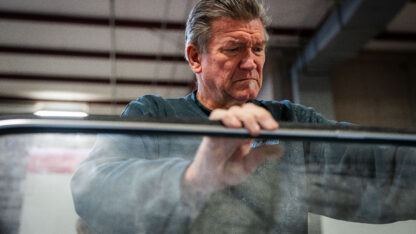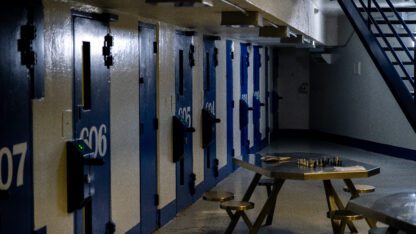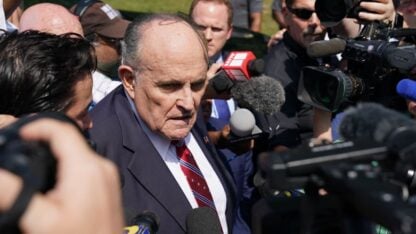For those with fond memories of watching kid-centered Nickelodeon television series like “All That, The Amanda Show” and “Drake & Josh,” the Investigation Discovery series “Quiet on Set: The Dark Side of Kids TV” may come as a jarring shock.
Already, the four-part docuseries has generated headlines by featuring former star Drake Bell recounting publicly for the first time his stories of being abused about two decades ago by Brian Peck, a dialogue coach and actor employed by Nickelodeon. Peck pleaded no contest to two charges and was sentenced to 16 months in jail back in 2004, but the identity of the performer he was convicted of abusing was not revealed in court.
But the program also spends lots of time digging into the work of show creator, showrunner, executive producer and performer Dan Schneider, who built a kids TV empire in the late 1990s and early 2000s at Nickelodeon. Schneider, who helped create, write or produce shows like “All That, The Amanda Show, Kenan & Kell” and “iCarly,” is credited with discovering young stars like Amanda Bynes, while defining the shape of kid-oriented television during that time.
The dark side of creating kids’ TV
Nickelodeon and Schneider’s success was rooted in creating shows that seemed like they were built just for kids, starring kids, and presented at a time when young people had fewer entertainment options. It was a golden age of children’s TV, featuring young performers who would go on to become stars as adults, including Kenan Thompson, Ariana Grande, Nick Cannon, Victoria Justice, Miranda Cosgrove and Jamie Lynn Spears.
“Quiet on Set” asserts the behind-the-scenes reality could be harrowing, presenting interviews with former staffers from the shows, plus parents, performers and journalists to detail assertions that Schneider became a more toxic boss as his influence grew. The docuseries presents allegations he devalued female staff writers, played favorites among the young actors while excluding performers of color, disrupted sets with bursts of anger and insisted female staffers give him back massages during production.
Schneider doesn’t offer a new interview on camera but appears in archival footage and photos. The show also features text statements in which he denies some allegations, insisting what he did on shows was scrutinized by dozens of adults — including programming executives — and that he never considered gender in hiring decisions.
The program also shows a statement from Nickelodeon at the end of every episode, which states that it “investigates all formal complaints as part of our commitment to fostering a safe and professional workplace. [We] have adopted numerous safeguards over the years to help ensure we are living up to our own high standards and the expectations of our audience.”
Kids’ TV with adult innuendoes
Among the most jarring sequences in “Quiet on Set,” scenes with young actors from Schneider’s shows, which seemed silly on the surface, but also evoked troubling sexual innuendoes in programming aimed at children – including a young Ariana Grande squeezing a potato suggestively to try and produce juice from it, or a moment where a blob of goo spurts onto the face of Jamie Lynn Spears.
The documentary also recounts how some staffers who worked at Nickelodeon were later convicted of molestation, including one man who met child actors as a production assistant and Peck, who played characters and worked with kid performers on Schneider-led shows.
“The bad just doesn’t go away,” says the mother of one child performer targeted by a man later arrested on molestation charges involving a different youth. “The bad stays for a lifetime.”
But the most emotional moments of the show comes as Bell relates his story. He says Peck convinced him to drop his father as manager and then involved himself deeply in the young performer’s life. Eventually, Bell said, Peck began abusing him sexually, creating a situation the young performer felt he couldn’t escape from.
“The abuse was extensive and it got pretty brutal,” Bell tells the camera at one point, shifting in his seat. “I really don’t know how to elaborate on that on camera….Why don’t you think of the worst stuff that someone could do to somebody as a sexual assault, and that’ll answer your question. I don’t know how else to put it.”
Bell, now 37, also speaks about problems with self-destructive behavior as he grew older. He pleaded guilty in 2021 to a felony charge of attempting to endanger children and a misdemeanor charge of disseminating material harmful to juveniles, connected to an incident in Ohio involving a teenage girl.
Fans who grew up with these shows and stars, enjoying their kids-running-the-asylum vibe, may be particularly troubled to hear that performers were exposed to these kinds of predators and toxic work environments. It’s tough to imagine what these stars’ bright smiles and sunny attitudes onscreen might have been hiding, though some have spoken out in the past, including former “iCarly” co-star Jennette McCurdy, who wrote the searing memoir “I’m Glad My Mom Died.”
In many ways, a docuseries like this one is a natural progression from the revelations of toxic behind-the-scenes behavior in adult-focused TV shows, films and the music industry kicked off by the #MeToo movement. Similarly, there had been previous reporting about allegations against Schneider and issues at Nickelodeon shows, but the power of “Quiet on Set” lies in getting people to sit before a camera and speak on the record about their allegations in compelling ways.
One important question left is whether programs like “Quiet on Set” can change popular attitudes about how child actors are treated in the same way that other works have changed ideas about sexual assault, harassment, and codes of conduct in the workplaces that fuel Hollywood’s dream factory.
Copyright 2024 NPR. To see more, visit https://www.npr.org.
9(MDAxODM0MDY4MDEyMTY4NDA3MzI3YjkzMw004))

9(MDAxODM0MDY4MDEyMTY4NDA3MzI3YjkzMw004))








